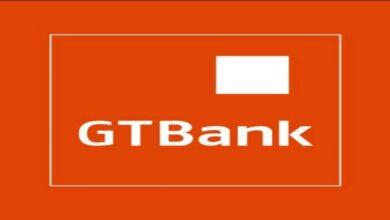The Role Of Financial Institutions In A Developing Economy
Financial institutions are establishments that conduct financial transactions such as investments, loans and deposits and foreign exchange.
They include Commercial banks, Investment banks, Insurance companies, Development banks, Mortgage banks, Micro-finance banks, Investment companies and so on. These are integrally involved in the economic development of every country.
👉 Relocate to Canada Today!
Live, Study and Work in Canada. No Payment is Required! Hurry Now click here to Apply >> Immigrate to CanadaA developing economy on the other hand is not subject to a concise and comprehensive definition. However, it is characterized by a vicious cycle of poverty encompassing low income, low savings, low investment and low productivity.
Read Also: 10 Functions Of Central Bank Of Nigeria (CBN)

Also common with developing economies are unemployment/underemployment, political instability, insecurity, inadequate education, internal and external debts, low levels of capital goods and infrastructure, poor housing and sanitation and so on. Most African countries and such others like Pakistan are categorized as developing economies.
Having examined briefly what financial institutions do and the depressing characteristics of developing economies, we must agree that financial institutions are a sine qua non for every developing economy which aims at attaining economic growth and economic development.
Economists generally agree that the economic growth, development and stability of every nation especially developing nations is dependent on the role of financial institutions within such nations.
This is the focal point of this piece. We shall therefore examine how the activities of financial institutions positively impact developing economies:
Read Also: List of 28 Banks in Nigeria and their Websites
1. Mobilization and allocation of resources
Financial institutions act as an intermediary to mobilize and channel financial resources from the surplus economic units to the deficit economic units.
Commercial banks for instance accept deposits from individuals and institutions that do not readily need them and transfer or allocate such savings to entrepreneurs, businesses and governments for investment and other purposes in exchange for interest.
👉 Relocate to Canada Today!
Live, Study and Work in Canada. No Payment is Required! Hurry Now click here to Apply >> Immigrate to CanadaThis in essence works to decimate the vicious cycle of poverty in developing economies by increasing investment which in turn leads to increase in productivity and income and consequently, more savings.
2. Implementation of governmental economic policies
Financial institutions provide the necessary environment for the implementation of various economic policies of government which are usually intended to stem inflation, stabilize exchange rate, manage foreign exchange and balance of payment and provide employment for citizens.
An example of such policies is the Small and Medium Enterprises (SME) scheme which the Nigerian Industrial Development Bank and Nigerian Bank for Commerce and Industry implemented successfully in the 1980s. Currently, the Bank of Industry funds the SME scheme.
3. Infrastructural development
One of the characteristics of a developing economy is lack of or inadequate infrastructure which are needed for the proper functioning of a country or any part of it.
Such infrastructure include roads, bridges, power supply, water supply and so on. Financial institutions oftentimes fund such projects.
The African Development Bank for instance is committed to investing in public and private capital projects and programs which are likely to contribute to the socioeconomic development of African countries.
Read Also: How to Link your BVN to your GTBank Account Using ATM, Text or Online
4. Management and reduction of risks
Insurance companies help individuals and organizations manage risks by taking premiums and protecting them from a particular loss which may result from fire, car accident, theft or even death.
The role of insurance companies thus ensures that losses are reduced and managed to preserve wealth. In essence, poverty gets reduced and the effects of crime such as theft and burglary are cushioned.
Commercial banks also reduce the risk of people losing their valuables especially cash by taking deposits from customers and keeping it for them.
Imagine a world where commercial banks do not exist and people had to stash their cash in their homes. Surely, armed robbery and theft will be the order of the day.
5. Creation of employment opportunities
A buoyant financial system directly and indirectly creates employment opportunities for the workforce of a developing economy.
Bankers, accountants, and economists are examples of directly employed people. Through SMEs, financial institutions make way for potential entrepreneurs.
Also through funding capital projects, a lot more people earn a living and so on. The role of financial institutions in this aspect is significant especially in developing economies where unemployment/underemployment is a bane. Through this, crime wave is drastically reduced.
6. Financing housing projects
One of the basic necessities of life is shelter. A man without a roof over his head is likely to be destabilized. In developing countries, human capital, poverty (a large proportion of the population live under $2), uneven income distribution, demographic growth are among the problems militating against housing projects.
This is one of the reasons why Mortgage banks e.g. the Federal Mortgage Bank of Nigeria were established. Mortgage banks give housing loans to people to ameliorate the saddening housing condition in developing nations.
The role of Mortgage banks also has the effect of stabilizing the average citizen and improving his health since according to the World Health Organization (WHO), communicable diseases spread as a result of poor living conditions and so nearly 2 million people in developing countries die from indoor air pollution.
Read Also: Mortgage Loans in Nigeria; Requirements and How to Get Home Finance
7. Rural development
The activities of micro-finance banks and cooperative societies is of immense benefit here. Most rural dwellers do not have adequate access to commercial bank loans due sometimes to insufficient collateral, high interest rate or even the technicality of the whole process.
Micro-finance banks and cooperative societies bridge this gap by providing micro loans to people to start up small businesses.
A particular aspect where their impact is most felt is in the promotion of agriculture – the loans are often used by farmers to purchase modern day farming equipment and chemicals such as ploughs, harvesters, fertilizers, weed killers and so on.
This increases productivity and promotes commercial farming as against subsistence farming. In general, the living standard of rural dwellers gets improved.
Other roles which financial institutions play which are beneficial to developing economies include: through the Tertiary Education Trust Fund (TETFUND), financial institutions have immensely impacted education in Nigeria by giving scholarship funds to students, building classrooms and lecture theatres for all levels of school and so on.
The gist is that the roles of financial institutions improve the standard of living of people in developing countries. Therefore, their importance in a development economy cannot just be overemphasized!








